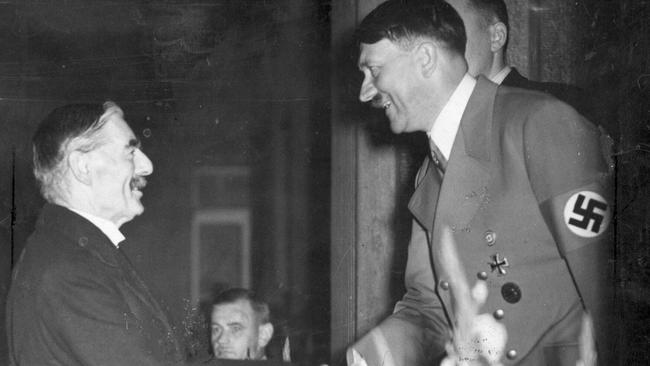
It’s hysterical and ahistorical. We have had plenty of these alleged moments in the last 50 years and yet, somehow, regardless of whether the US did what the hawks demanded of it, no repeat so far of the Second World War.
You might think the failure of events to conform to their alarmist predictions would give pause to this crowd of strategic blunderers, who, it should be noted, have had significant influence over US policy since the end of the Cold War. But they’re at it again.
Vladimir Putin’s demands to the US and NATO over Ukraine are, we are told, the equivalent of Hitler’s ultimatum over Czechoslovakia, with Joe Biden and the EU’s temporising leadership playing Neville Chamberlain and Edouard Daladier.
“Appeasement of Russia would deliver exactly the same outcome as the betrayal of Czechoslovakia at Munich – dishonour and disaster,” thundered Stephen Blank, a senior fellow at the Foreign Policy Research Institute. “On Ukraine, Biden is channelling his inner Chamberlain,” wrote Marc Thiessen, a Republican foreign policy specialist, in TheWashington Post.
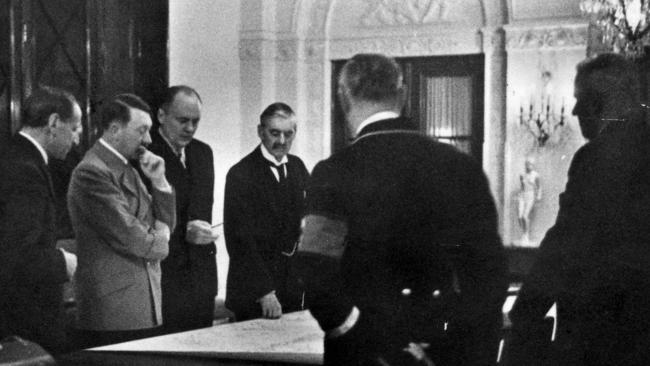
When your only tool is a hammer, every problem looks like a nail. When your only historical analogy is a half-understood international summit meeting from eight decades ago, every strategic problem looks like the Sudetenland. In fact the Munich experience is helpful in understanding and perhaps resolving the crisis in Ukraine – just not in the way the American hawks think.
It was the historian AJP Taylor who noted that among the many sins of the Versailles Treaty after the First World War was the inclusion of more than three million Sudeten Germans in the ethnically and politically hybrid creation of Czechoslovakia. For Hitler, revanchism was political opportunity. His demands for the unification of the German-speaking people were popular at home and not unreasonable in the minds of fair-minded leaders abroad. With hindsight, of course, we can see it as a prelude to his campaign of genocidal expansionism that engulfed Europe, but at the time not many saw it that way.
Just as German demands in the 1930s were framed in part as a reaction to the flawed European settlement after the First World War, so Russian demands today can be understood as a reaction to what is seen there as the flawed European settlement after the Cold War. The ambiguity of Ukraine’s status on the fringes of Russia is not simply an invention of Putin’s expansionist ambitions. It has been historical reality for centuries.

In a fascinating new study of the decline and fall of the Soviet Union, Vladislav Zubok, a professor of history at the London School of Economics, reminds us that in the chaotic final months of the USSR, the status of Ukraine was uncertain. Boris Yeltsin was alarmed at the threat Ukrainian nationalism posed to Russians. In August 1991 he issued a declaration, with a warning about the shifting boundaries of the disintegrating Soviet Union: “There exists … the problem of borders. The non-settlement of which is possible and admissible only on condition of allied relations secured by an appropriate treaty. [Russia] reserves the right to raise the question of the revision of boundaries.”
According to Zubok, the declaration was a warning to Ukrainian nationalists about the status of Russian-speaking minorities in the east of the country. A subsequent referendum produced a large majority in favour of Ukrainian independence within its Soviet-era borders, but it failed to remove the ambiguity of the key eastern parts of the country.

This is where a proper understanding of the Munich history can be helpful. Events after Munich ultimately demonstrated the hollowness of Hitler’s pledge of a “last territorial demand” in Europe. But acceding to the German claims at the time was a necessary precondition to expose the ultimate, wider agenda of Nazism, and to buy time for reinforcing our defences.
So it can be with Putin. If his demands are really about Russian security and ethno-nationalism, the West can calmly and responsibly offer him some concessions that don’t have to look like surrender. Ukraine is not joining NATO in his lifetime, for starters. Instead of treating Russian claims as evidence of Hitlerian intent that must be resisted, by bending over backwards to acknowledge Moscow’s interests we can expose – if they exist – the Kremlin’s larger, more malevolent intentions. In the process, as Chamberlain did with Munich, we can use the opportunity to bolster the West’s capacities and resolve.
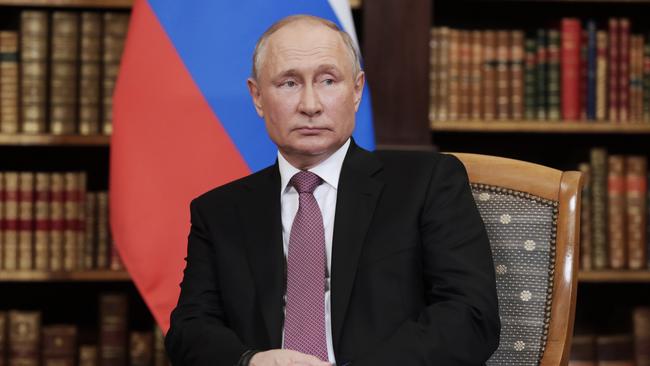
This, sadly, is where the Munich analogy breaks down. Even before the Japanese bombed Pearl Harbor, the US came to see the reality of the German threat and began to supply essential material support to Britain to resist the eventual Nazi assault.
Putin is no Hitler. His larger aims don’t encompass the subjugation of the entire continent by military force. Instead he may well see the opportunity to exercise growing hegemony over the European space in the face of the West’s divisions and irresolution. Europe remains sleepily reluctant to see the risks of its pacifist inclinations. The US is firmly in the grip of bipartisan opinion that Europe is no longer the primary locus of American strategic interests.
For all the opprobrium it has attracted, Munich ultimately enabled the development of a clear-eyed assessment of the threat to western democracy and helped to induce the will to resist it. If only we had that kind of appeasement mentality today.
The Times



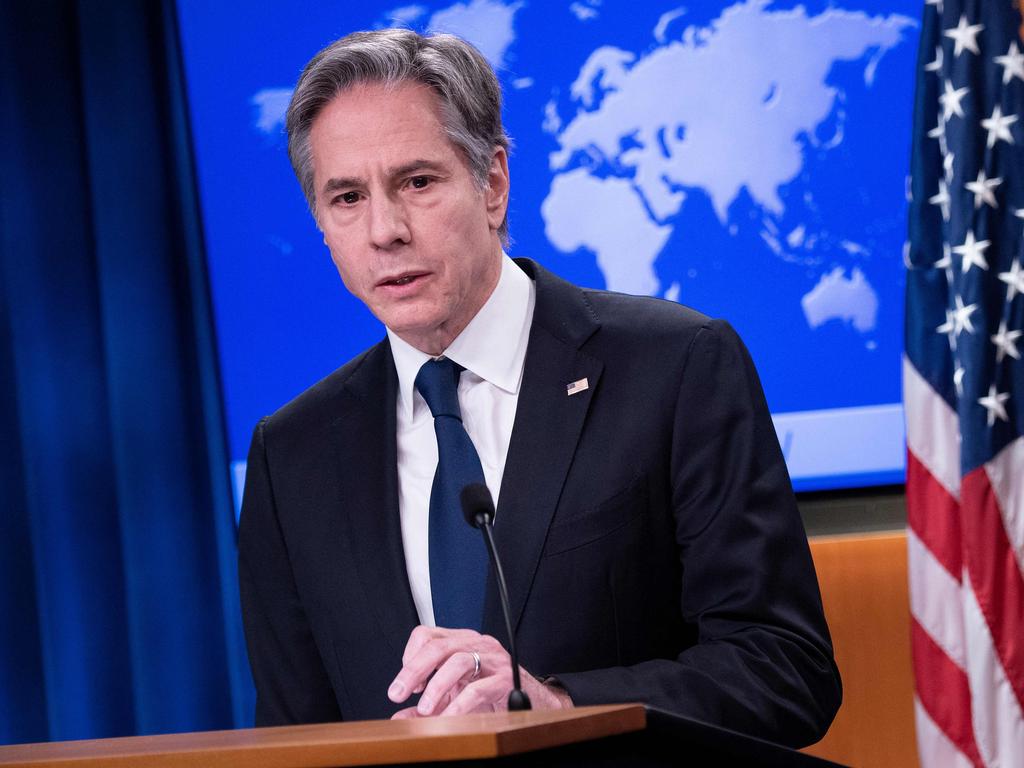

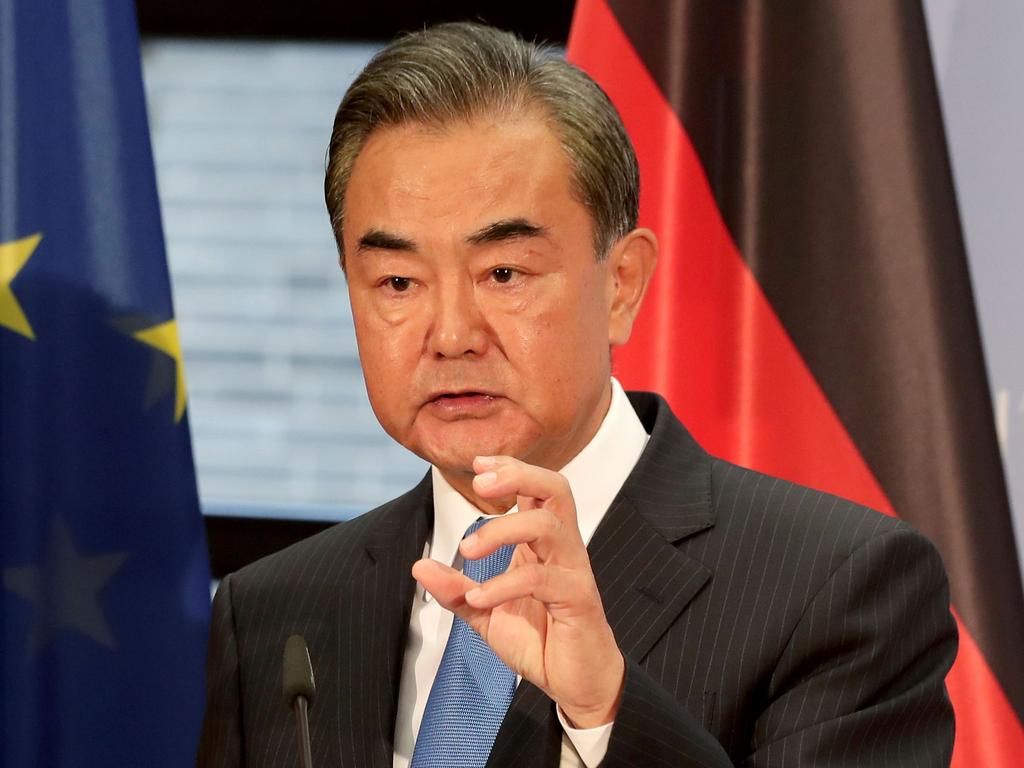


To a certain type of hyperventilating American interventionist, the history of the modern world is essentially a series of Munich moments. Every time an international dispute somewhere threatens to escalate into conflict we are warned that failure by the US to take a stand would represent a repeat of the appeasement of Adolf Hitler’s Germany in 1938.